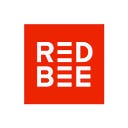Apple TV+ does “Originals” with a capital “O”
“Originals” is fighting for its life as a meaningful premium stamp on streaming content.
I remember being genuinely peeved way back in 2018, seeing the BBC and Jed Mercurio’s Bodyguard newly anointed a “Netflix Original.” It felt like cheating. NRK’s Norwegian highschool drama sensation Skam became a “Netflix Original” in Italy and a “Movistar+ Original” in Spain.
It was great news that the Roku Channel had bought and given a new home to the shows created by the failed streamer Quibi, but not-so-great to see them re-branded “Roku Originals”.
And whilst Amazon Studios’ The Marvellous Mrs Maisel and Prime Video’s Undone are some of the very many shows that are justifiably branded as “Amazon Originals”, why too were American Gods (Starz) and Fleabag (BBC)?
It was the channels and networks that took the commissioning risk and the studios that were the creators. But, increasingly, it was the distributors that were getting the audience credit.
“Originals” today has become a blurry brand bucket label, into which our streaming brands aggregate shows that they self-produce, together with those that they commissioned and those that they licence to distribute exclusively. It’s a win-win financially for the creators and the distributors. So, what’s the problem?
The problem is two-fold:
Firstly, for the business: “Originals” are flagship titles, designed to build brands, shape perceptions and command a premium — but if pretty much everything could qualify on someone’s platform as “An Original”, then it becomes meaningless and commercially devalued.
Secondly, for audiences: Brands should help audience navigation and choice. In the abundant, accelerating and app-tastic world of streaming content, boy do we need help saving our evenings from endless scrolling and shouting “what shall I watch?” at each other/Alexa from the sofa. What typifies a Netflix Original versus an Amazon Original? What is their brand’s unique editorial positioning, style or experience?
True Originals are a blend of making and innovating. Of authenticity and uniqueness. There is a world of difference between origination and originality. I’m reminded of BBH’s Levi’s ad, with the surprised audience beholding original on-stage antics. True originals elicit some level of “new” response from their audience.
Perhaps no brand embodies or empowers creative originality more than Apple, and so, to revive our industry’s ailing product descriptor, trust Apple TV+. It is described as “a streaming service with original stories from the most creative minds in TV and film.” And it is. Since its 2019 launch with flagship series The Morning Show, starring Reese Witherspoon and Jennifer Aniston, it was clear that Apple would (as it should) Think Different about streaming: less would be more. Whilst others aggregate eye-watering quantities of content, Apple TV+ would curate the highest quality Original content (with a capital ‘O’).
At Red Bee Creative we’ve loved the lyrical Oscar-nominated animated film, Wolfwalkers; the on-point video game-makers workplace comedy, Mythic Quest; R.J. Cutler’s intimate doc-film, Billie Eilish: The World’s a Little Blurry; the slow-burner-that-became-a-cult-comedy, Ted Lasso (inspired by a series of the most splendid NBC Sports spots), …through to our new favourite Trying: Andy Wolton’s beautifully warm and nuanced comedy around a young couple attempting to adopt. (Trust us on this, it has all the heart of Schitt’s Creek, and a huge dollop of British dark humour as well).
This originality is winning shelves of awards and winning fans, as the trusty Tomatometer testifies.
Looking to the future, Apple is betting big on more Original creativity: Apple beat Amazon in a bidding war to claim, for $25 million, the multiple Sundance winner CODA, and in its commitment to $430 billion of investment in the US over the next 5 years, it pledged this would include “dozens of Apple TV+ productions across 20 states”.
But, is Originality enough? Is it at odds with making money?
Netflix Originals such as Stranger Things and Roma have courted fame, yet the global fortune of Netflix seems to not rely upon originality: in a Guardian article analysing the *unhinged* choices in the Netflix Top 10, Wendy Syfret notes “Netflix doesn’t make money from acclaimed hits or respected output; it succeeds by coaxing people to spend massive amounts of time on their site”.
Whilst Apple TV+ is still offering free trials with hardware: “Buy an Apple device. Get 1 year on us.” and, in so doing, is taking us deeper into its tech and entertainment brand ecosystem. But in the UK, Apple isn’t stealing audiences away from Netflix, Disney+ or Amazon. With no adorable Baby Yoda or compelling Tiger King, Apple TV+ didn’t really benefit from the 2020 Covid-19 streaming boom. Kantar reports Apple TV+ only received 3.8% of the 12.9m new SVoD subscriptions.
To make matters worse, at the end of 2020, 26% of Apple TV+ users said that they planned to cancel their subscription once their free trial finished — 35% of whom say that they are not using the service frequently enough to justify the cost
So, what is going to get them to change their minds and see £4.99 a month as money well spent? There have been murmurings that in the States, Apple TV+ will pursue a different audience with the streaming of live sports, evidenced perhaps by its hiring of James DeLorenzo, who had led Amazon Video’s sports division since 2016.
But here’s a simpler and certainly quicker solution: advertise your Originals more.
In the UK at least, there is vast swathe of audience who want to try something just a smidge to the edge of mainstream: many of whom have an unused or under-used Apple TV+ subscription.
The desirability of originality and creativity is not a niche or middle-class construct, as Apple itself has proved to us all.
Let other streamers entice audiences with an “all you can eat buffet.” Apple TV+ invites you to dine at the chef’s table. But hurry and let a hungry audience know what truly Original content is on the Apple TV+ menu.
Lisa Matchett, Head of Planning
